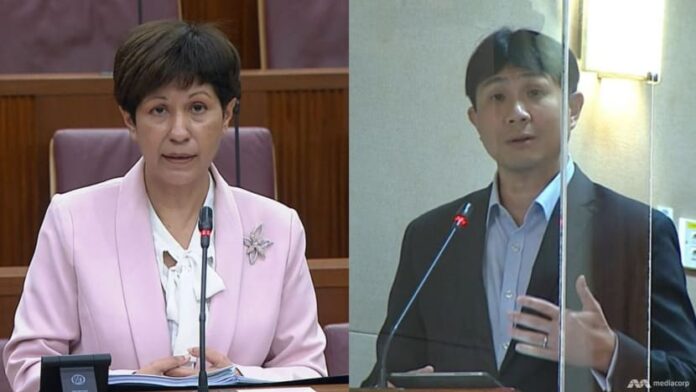Singapore: Indranee Rajah, the second minister of Singapore’s Ministry of Finance, told the parliament on Monday (November 1) that the government is not opposed to taxing wealth, but such policies should be effective and the rich cannot easily avoid it.
Ms. Indranee is responding to MP Jamus Lim (WP-Sengkang)’s motion to adjourn Singapore’s need to consider more types of wealth taxes.
She said: “The question has never been whether we want to tax wealth, but how to do it effectively so that it cannot be easily avoided.”
“So, in the final analysis, I don’t think we have any problems with the wealth tax itself. We just want to make sure that everything we deploy is effective.”
Previously, Finance Minister Lawrence Wong stated on October 15 that Singapore would continue to study how to expand its wealth tax system in the face of key challenges such as inequality and climate change.
Singapore currently levies property taxes, but does not levy other types of taxes such as property gains or inheritance taxes. These are different from general wealth taxes, which involve trying to value different assets.
Achieve income diversification and eliminate inequality
Associate Professor Lin stated in the adjournment motion that wealth tax can improve the diversity of government revenue sources and help manage social problems caused by rising inequality.
He called Singapore’s income inequality a “problem” and pointed out how the country’s Gini coefficient (which measures the unequal distribution of income or wealth) after redistribution puts it at the top of the scale of inequality, comparable to the United Kingdom and the United States. .
Associate Professor Lim listed some solutions that Singapore can explore, including the reintroduction of inheritance tax, although he pointed out that there are concerns that this may weaken the country’s value proposition as a wealth center.
He said another option is to make the inheritance tax more progressive, such as imposing another level of tax on high-value properties.
Associate Professor Lim also proposed a 0.5% general tax on net wealth exceeding S$10 million, 1% for net wealth exceeding S$50 million, and 2% for net wealth exceeding S$1 billion.
He added that this tax can be assigned to a special purpose foundation whose task is to use up all of its donations and allocate expenditures to government-approved uses that are “in line with national priorities”.
Associate Professor Lim suggested that taxation may also be limited to cases where net wealth gains are positive.
He pointed out that Singapore has had experience with other forms of wealth tax in the past, and he added that it should not be afraid to risk its competitive position because other jurisdictions have already adopted similar capital taxes.
“More generally, we need to get rid of the misconception that low taxes provide the most competitive advantage for our position as a global financial center.”
Associate Professor Lim cited a report by PricewaterhouseCoopers, which showed that low taxes were not one of the main factors that made Singapore attractive for asset and wealth management. Associate Professor Lim said: “Tax competition is more suitable for the 20th century. Not the mindset of the 21st century.”
Taxation in a “competitive way”
In response, Ms. Indranee disagreed with Associate Professor Lim’s suggestion that the company may no longer consider tax rates, and said that this cannot be fully discounted.
“And it must be remembered that wealth can flow. Singaporeans and foreigners can move talents. Companies can move,” she said.
“Therefore, we must tax in a competitive way and allow individuals and companies to generate income to encourage them to stay here, and then use, redistribute and redistribute these income.”
Ms. Indranee also talked about Associate Professor Lim’s comments on how the Goods and Services Tax (GST) disproportionately affects low- and middle-income groups, calling it a sentence “often” repeated by the Workers’ Party.
Ms. Indranee said that the GST system is designed to help low- and middle-income groups, and pointed out that programs such as GST vouchers and S$6 billion protection plan are designed to help these groups get through the tax increase stage.
“To be fair, it is important to also consider what we are doing to support and buffer middle-income and low-income people in order to reduce any additional burden on them due to the goods and services tax. We make it a better one. A fair and systematic approach,” she said.
Strike the right balance
Despite this, Ms. Indranee said that the government “does not oppose” Associate Professor Lim, because the government has been looking for ways to supplement revenue, but pointed out that this must be done in a “right balance” manner.
“Therefore, with regard to wealth tax, it is not in itself to levy more types of wealth tax. On the contrary, it is important to formulate wealth tax policies that apply to each jurisdiction,” she said.
For example, Ms. Indranee pointed out that Switzerland is another wealth management center that levies net wealth tax, inheritance tax and property-related taxes, and its wealth tax revenue accounts for approximately 1.9% of the gross domestic product (GDP).
She said that this is equivalent to Singapore’s wealth tax revenue, accounting for about 1.8% of its GDP, and added that Singapore will continue to review wealth tax.
Finally, Ms. Indranee said that Singapore’s tax system is fair, and the greater the contribution, the more people.
She added: “It is dynamic because it imposes a lower tax burden on corporate workers and enables them to retain the fruits of their labor.”
“We care about competitiveness not for competitiveness, but to promote growth for the benefit of everyone, and it is financially and environmentally sustainable.
“This is what a well-designed tax system in the 21st century should look like, and we will continue to improve it and make it even better.”






